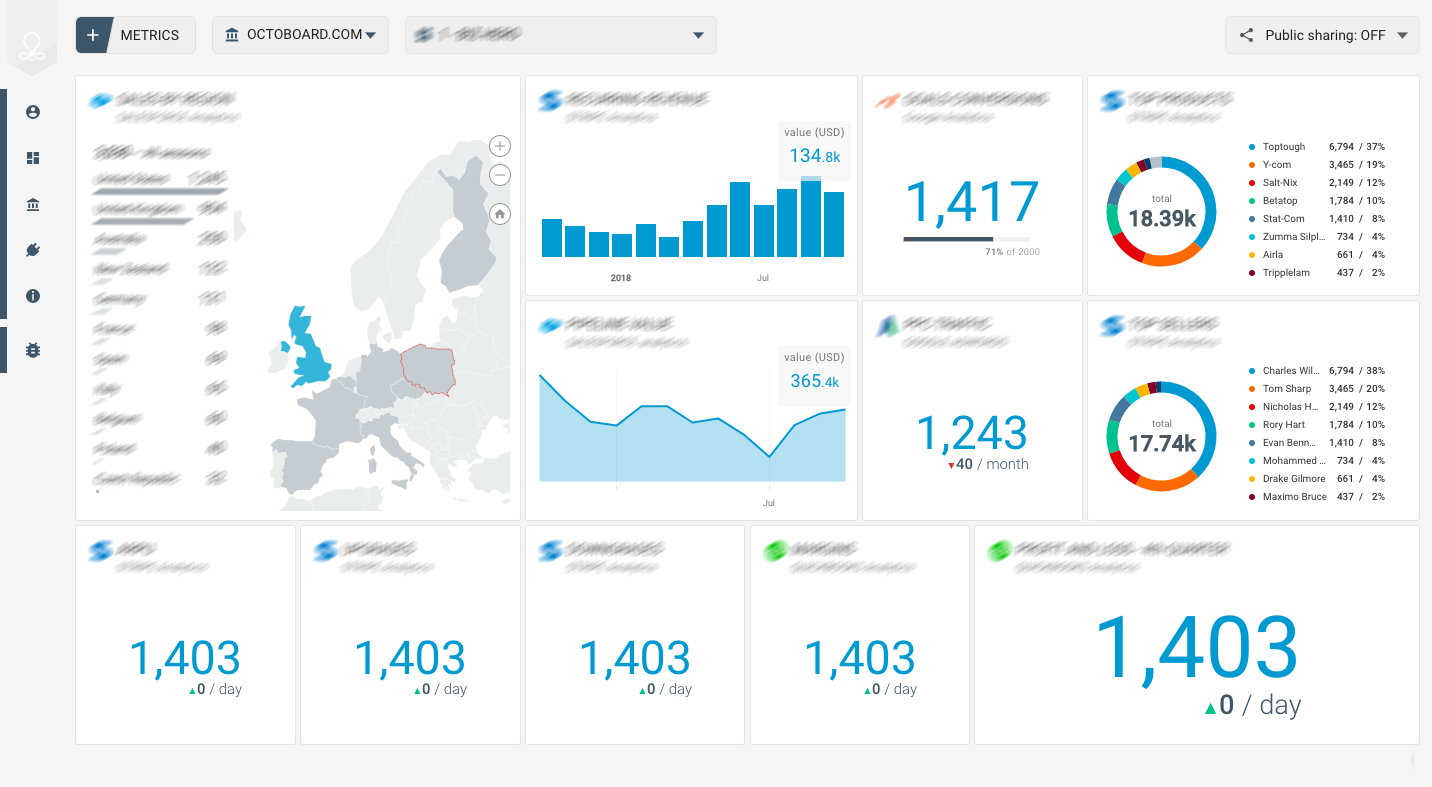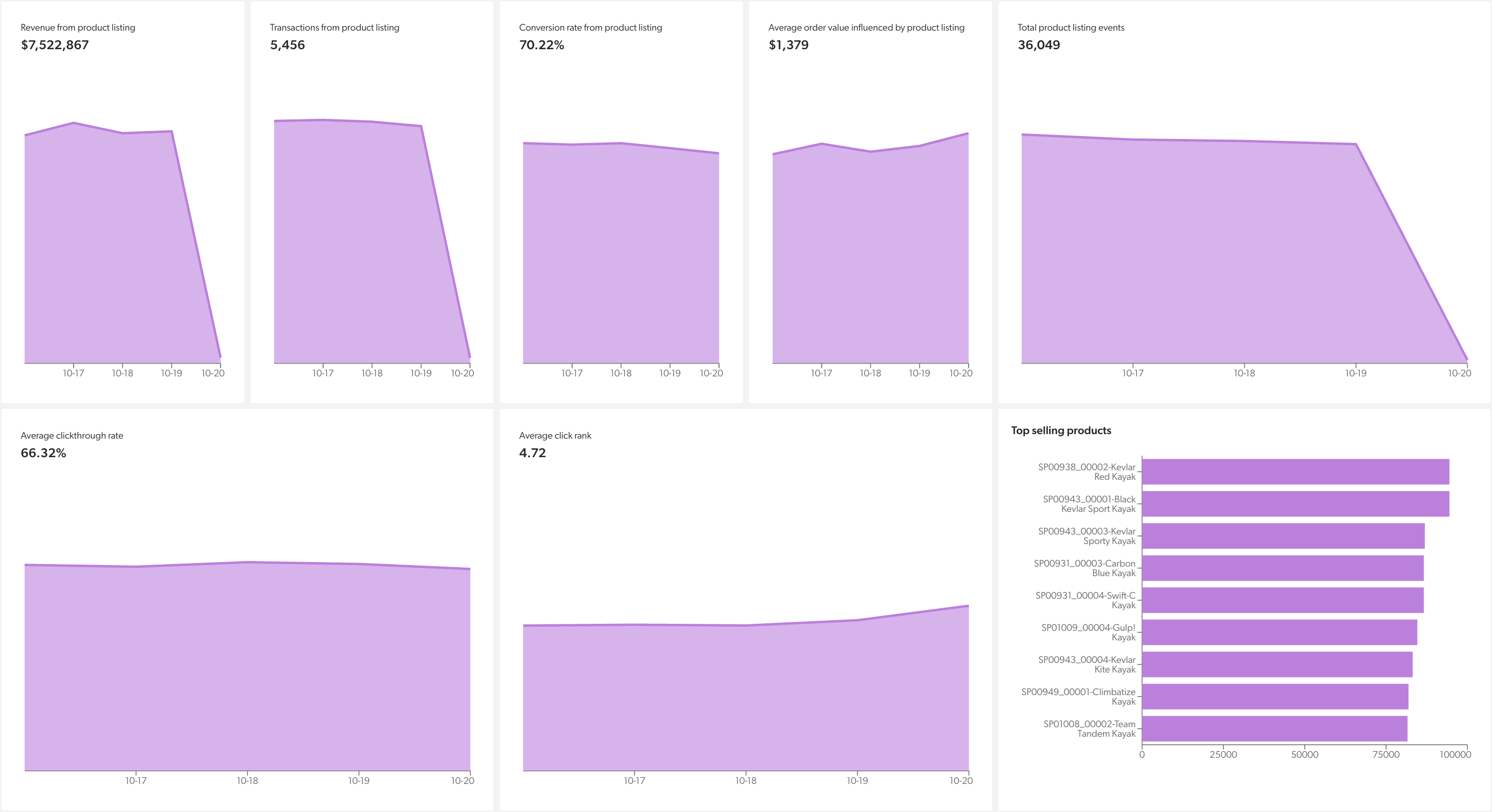Alternatives to Constructor Product Discovery
1. Algolia
+Pros
- Proven search speed performance with documented sub-50ms response times.
- Hybrid vector-keyword architecture providing unique technical differentiation.
- Validated customer outcomes demonstrating measurable business impact.
-Cons
- Dependency on structured product data for optimal performance.
- Ongoing optimization requirements through biweekly relevance tuning cycles.
- Pricing transparency challenges particularly for enterprise tiers.
One highlighted feature and why it's amazing
Combines vector-based semantic understanding with traditional keyword search through a single API, enabling contextual understanding of ambiguous queries while maintaining exact-match capabilities for specific product searches.

Another highlighted feature of why it’s amazing
Operates through three integrated functions that enhance search relevance without manual intervention: Query Understanding, Retrieval, and Dynamic Re-Ranking.
2. Amazon Alexa for Business
+Pros
- Leveraging Amazon's 52.7% US smart speaker market share for user familiarity advantages .
- Strong performance in automotive voice commerce scenarios, with 73% of users preferring Alexa for in-car purchasing .
- AWS integration providing comprehensive cloud service connectivity for existing AWS customers.
-Cons
- Apparent product discontinuation or significant rebranding, with the primary AWS link redirecting to Alexa Smart Properties .
- Implementation complexity requiring 14-26 weeks for mid-market deployments with substantial technical expertise and change management capabilities .
- Vendor lock-in through mandatory AWS infrastructure created integration challenges for organizations using alternative cloud platforms.
One highlighted feature and why it's amazing
Enabling hands-free meeting coordination and calendar integration through natural language commands.

Another highlighted feature of why it’s amazing
Particularly with Salesforce, allowing voice-driven customer data access and workflow automation .
3. Coveo
+Pros
- Proven enterprise capabilities and measurable business impact
- Leader recognition in Gartner's Magic Quadrant
- Composable AI architecture and enterprise-scale security certifications
-Cons
- Significant implementation complexity requiring 6-9 month timelines
- Admin complexity requiring extensive learning
- Custom pricing model limiting cost transparency
One highlighted feature and why it's amazing
Combines predictive query suggestions with 1:1 personalization engines.

Another highlighted feature of why it’s amazing
Enables question-answering functionality grounded in product catalogs.
Other Alternatives
Elastic
Klevu AI Search
SearchAgent for Shopify
How We Researched This Guide
About This Guide: This comprehensive analysis is based on extensive competitive intelligence and real-world implementation data from leading AI vendors. StayModern updates this guide quarterly to reflect market developments and vendor performance changes.
365+ verified sources per analysis including official documentation, customer reviews, analyst reports, and industry publications.
- • Vendor documentation & whitepapers
- • Customer testimonials & case studies
- • Third-party analyst assessments
- • Industry benchmarking reports
Standardized assessment framework across 8 key dimensions for objective comparison.
- • Technology capabilities & architecture
- • Market position & customer evidence
- • Implementation experience & support
- • Pricing value & competitive position
Research is refreshed every 90 days to capture market changes and new vendor capabilities.
- • New product releases & features
- • Market positioning changes
- • Customer feedback integration
- • Competitive landscape shifts
Every claim is source-linked with direct citations to original materials for verification.
- • Clickable citation links
- • Original source attribution
- • Date stamps for currency
- • Quality score validation
Analysis follows systematic research protocols with consistent evaluation frameworks.
- • Standardized assessment criteria
- • Multi-source verification process
- • Consistent evaluation methodology
- • Quality assurance protocols
Buyer-focused analysis with transparent methodology and factual accuracy commitment.
- • Objective comparative analysis
- • Transparent research methodology
- • Factual accuracy commitment
- • Continuous quality improvement
Quality Commitment: If you find any inaccuracies in our analysis on this page, please contact us at research@staymodern.ai. We're committed to maintaining the highest standards of research integrity and will investigate and correct any issues promptly.